Softball Hitting Slump Psychology: How To Get Out | Mental Toughness Coaching Training Program: Heads-Up Baseball 2.0 By Dr. Tom Hanson
Discover the psychology of getting out of a softball and baseball slump. The best mental toughness coaching training program on the market starts and ends with Dr. Tom Hanson’s Heads-Up Baseball 2.0!
Tom Hanson PhD. Interview: How To Build Mentally Tough Hitters
You guys know Dr. Tom Hanson right?!
He wrote an impressive book on the mental part of hitting with Ken Ravizza called Heads Up Baseball 2.0 in the 90’s, which both authors will be releasing a 2.0 version very soon.
This was one of my favorite books when I was playing back in the day 😀
And by the way, just because fast-pitch isn’t mentioned, believe me, his psychology principles work for softball as well.
For those not familiar with Dr. Hanson’s background, here’s a short bio, he:
- Played baseball through college, got my Ph.D. in Education specializing in sport psychology from the University of Virginia in 1991.
- Was UVA’s hitting coach for three seasons.
- Was a tenured professor and head baseball at Skidmore College (NY)
- Worked full-time as New York Yankees mental game guy in 2001.
- Has coached in the Angels, Twins, Rangers, and other organizations.
The above video is Dr. Tom Hanson going over what the “Yips” are, and how to fix them.
Without further adieu,
Here is the…
SCIENCE-BASED TRAINING:
Improve your hitting strategy dramatically by applying human movement principles.
Learn not only how and what to train but also the science behind the methods.
Interview with Dr. Tom Hanson…
If you were to train me for four weeks for a HUGE tournament and had a million dollars on the line, what would the training look like? What if I trained for eight weeks?
1. Take my full Play Big assessment so we can see with precision:
- How clear your thinking is on the 6 dimensions;
- What motivates you;
- Your behavioral style (so I know how to coach you and see what style you’re likely to play best at).
2. We review your results and determine how to best leverage your strengths and address holes in your game.
3. We would co-create a training plan tailored to you.
4. Having been doing this for 30 years I have a lot of tools. Some normal like goals, breathing and visualizing. Some pretty far out such as “tapping”, where we leverage Chinese-based meridian in your body.
5. We have some training you do each day for about 20 minutes, then specific things to do while you are practicing baseball. There isn’t a mental game and a physical game — they are one. So I’d teach you to practice that way.
What makes you different? Who trained you or influenced you?
I’m different because:
- I have a relentless curiosity on how to do things better;
- I have a liberal arts back ground. That means I’m trained to see how different things are related. I pull things together from different worlds;
- I’m open minded. I look all over the place for approaches and techniques to help people. I’m a learner, not a knower.
What are your favorite instructional books or resources on the subject? If people had to teach themselves, what would you suggest they use?
Hmmm…
-
The Inner Game of Tennis: The Classic Guide to the Mental Side of Peak Performance
, by W. Timothy Gallwey
-
Play Big: Mental Toughness Secrets That Take Baseball Players to the Next Level
, by Dr. Tom Hanson and Todd Pearl
What are the biggest mistakes and myths you see in hitting? What are the biggest wastes of time?
Hitting coaches most often operate with an inadequate model of what they are working with. They operate too often as if they are working on a machine, not a person. Sure they have some sense of the mental game, but there is sooooooooo much more going on than their operating model accounts for.
You can’t just see a “flaw” and correct it without affecting the whole “organism” — the player may be mad at you for it, may think about it too much, may now be doing something his dad told him to do the opposite, etc.
The key is that coaching happens in a relationship. It happens in an emotional context. Relationship enables or disables coaching. Mechanics are just a part of hitting; what you see in a hitter isn’t really what’s happening with that hitter.
You may think you know what he’s doing but you may not. I’ve finally found a coach I’ll let work with my son because I saw how he:
- Coached for my son’s benefit, not his own
- Talked and built a relationship and some understanding before he did anything else
- He watched him hit for a while before he asked my son a few more questions. He was coaching my son the human, not the boy hitting machine.
Who is good at hitting despite being poorly built for it? Who’s good at this who shouldn’t be?
No one. The “built for it” means they’ve got great hand-eye athleticism. You can’t hit without that. Body type is a smaller part of it, so there can be wide variance.
Who are the most controversial or unorthodox hitters? Why? What do you think of them?
I don’t know.
A really good hitter is able to take in info from hitting coaches (or other sources) and integrate it with who they are. The hitter is responsible for his own swing.
I expose my 13U son to many approaches, well, some, and he knows he has to work out for himself how he hits best. I don’t want him swinging and then looking at me, or another coach, to see how it was. HE needs to know.
A hitter must soon get to where coaches are resources for him, not authority figures dictating his swing. As parents we need to find places where that is.
Who are the most impressive lesser-known teachers?
I’d say me. I’m sitting on a lot of good info but not putting myself out there. I coach a lot of executives and love to watch my own kids play.
I will shout out Ken Ravizza. He’s awesome. He and I will be launching Heads-Up Baseball 2.0 in the next month or so. Get on the early notice list here:
Have you trained others to do this? Have they replicated your results?
No. That’s coming pretty soon.
The best way to expand your model of what you’re working with (a human, not a machine), might be to take my assessment. It gives you feedback on elements of “human” you didn’t think about before, and certainly didn’t think you could measure.
Read a lot, be a learner.
…
Thank you Dr. Tom Hanson for sharing such great insight and knowledge!
Remember guys, knowledge IS NOT power…it’s POTENTIAL power. Please put Dr. Hanson’s work to use.
Here’s how you can stay updated with Dr. Hanson:
- Websites: http://headsupbaseball2.com/ & http://playbigbaseball.com/
- “Like” his page on Facebook (Play Big Academy),
- Follow him on Twitter, and
- Subscribe to his channel on YouTube.
Please direct any questions or comments to Dr. Tom Hanson below…
- Fix Late Swings Fast: 2025 Pitch Recognition & See-Decide-Swing Training for Youth Baseball Power Hitters - October 6, 2025
- Safe Youth Weighted Bat Training: Proven Overload/Underload Drills to Increase Exit Velocity in Games Starting Tonight - September 29, 2025
- AI Coaching Course 2025: Youth Baseball & Softball Practice Plan + Off-Season & In-Season Workout Builder Fast - September 23, 2025

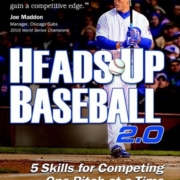
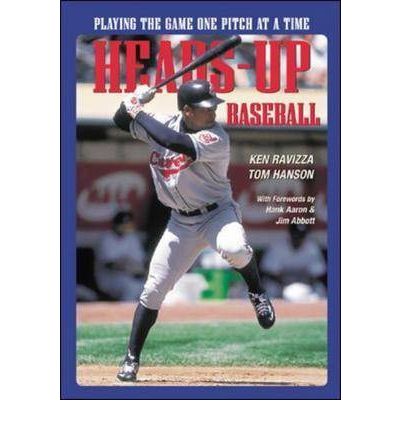
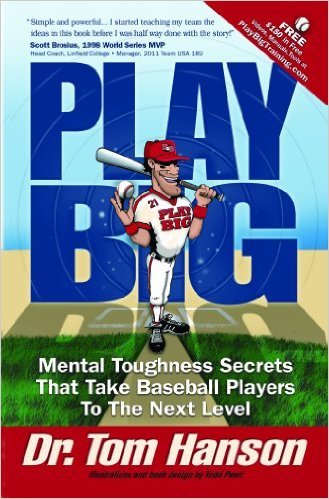
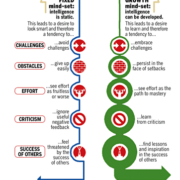
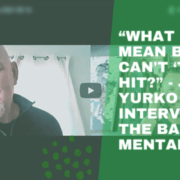





Joey,
Great stuff! There is obviously a great need for this stuff. I am familiar with Hanson and Ravizza’s work. Used Ravizza’s work on routines with Evan Longoria in my class. All coaches should but only enlightened coaches will plug in to such information. However, there will be those you won’t have the patience or the insight to apply this stuff to their coaching. Not good.
Yet, I see some drawbacks to all of this and I am not a Neanderthal in seeing them. One being that all of this intention is being given to the individual, with everything being tailored to individual learning and behavioral styles as Dr. Hanson pointed out. It reminds me of the movie, SAVING PRIVATE RYAN, where resources – human and military – were allocated to “save” one guy. So, what takes precedence the individual or the team? I’ve seen the effects of helicopter parents expecting everything to be done for their kid to the detriment of the team and the program. Who can forget former NFL coach and current ESPN analyst, Herm Edwards, saying seriously at a press conference, though it has joined Jim Mora’s “playoffs!” in the archives of humorous sports quotes, “You play to win the game.” We’ve seen how “me-first” athletes, Reggie Jackson, Alan Iverson, Johnny Manziel, Ryan Lochte, Odell Beckham,Josh Norman, etc.have wreaked havoc on the team concept. So, what is it – the team or the individual? As Tom Hanks said in SPR, “:Earn this.” The individual has to earn all of that attention and not just get it.. Unfortunately, those with the most talent get the longest leash.
And, I’m a believer in what Hanson and Ravizza are doing. Its just that there needs to be a balance to it all. The goal is to strike that balance. I have found that most difficult to achieve.
Joe, so you brought Dr. Hanson’s material to Evan Longoria in your class!! That’s so cool. He championed Hanson and Ravizza’s stuff.
I’m reading a book I think you’ll like called Mindset, by Dr. Carol Dweck (you may have heard of her). She talks about the Growth v. Fixed mindset.
And I think what you’re referring to is the Fixed mindset athletes. The idea is these athletes believe their ability is fixed and cannot get better. It’s the Growth Mindset athletes that believe they can better their abilities through the right mentors, work, and resources. Michael Jordan (GROWTH) v. John McEnroe (FIXED) for example.
Besides Dr. Hanson’s stuff, I think if you look into Neuro-Linguistic Programming (NLP), that may shed some light on the challenges you’re having. I’m currently putting together a sticky coaching course that will get into this specifically.
Joey,
No, it was Ravizza’s work with Longoria. It was about how routines help get rid of that evil dragon who lurks in the head of athletes – their conscious mind, their insistence of trying to control the process. It was about how Ravizza taught Longoria how to escape being too aware of his situation and himself.
I’ll check out the book by Dweck. It seems like she stole a page from Abraham Maslow’s Toward A Psychology Of Being – his Safety vs. Growth Diagram.
No, you missed my point in my last post, maybe intentionally since I know I’m bucking the trend away from the collectivism of the team toward the emphasis on the individual and their quest for self-expression and self-actualization (stole that from Maslow myself). I realize that this trend is now a good portion of our Gross National Product as well.
What we are creating with all of this individual focus – hitting instructors, pitching instructors, fielding instructors, sports psychologists, helicopter parents, advocates of all types, etc. – is an anti-team mindset. What was it that Charles Barkley referred to Alan Iverson as – “Me, Myself, and Iverson?” Well, “the disease of me” is here and it is infecting everybody but those wise enough to know the symptoms and after-effects. Where’s Bill Belichick when we need him, or Mike Matheny? The preponderance of self-centeredness is self-defeating, that’s if you are focused on the team concept (as Herm Edwards said, “You play to win the game.”) Not that easy when the focus is on the individual.
For example, I’m coaching a travel team this fall. Between innings while my pitcher was taking his warmup tosses, one of my players asked me why he was getting jammed. I said he was striding into the plate and dipping his barrel a bit toward the other batters box. By that time, my pitcher had finished with his warmup tosses and the opposing batter stepped in. I’m trying to call pitches and that player is standing in front of me trying to do what I suggested and continued to do so for a few pitches before I told him to go behind the dugout to work on his swing because he was preventing my catcher from reading my signs. He was totally oblivioys to the game going on with no concern for my team getting the opposition out, just a concern about himself. This player is not the exception but the norm nowadays, ironically something I would have given my right arm for when I was back in college – a focus on the individual. But balance is needed. Maybe I’ll right a book.
Sorry, I only thought you were only allowed to rant. You and Djura. Lol. And to think this is coming from a guy (me) whose college coach used to make fun of him for reading psychology books. But I have a penchant for balancing things and I see the pitfalls in accentuating the individual as was demonstrated in SAVING PRIVATE RYAN.
Great job on the webinar the other night in spite of the tech glitches.
Rant on Joe! I totally agree with you about the trends. However, I think if we breed a Growth instead of Fixed Mindset, the athletes will fall into line psychologically. Thanks for the kind words about the webinar…a work in progress for sure.
Nice article… It’s hard for me to comment as my son is 8 and he was scared of the machine for 2 years… I remember he hit a double in the playoffs with 2 outs in the last inning in a tie and I asked him how he felt… He said nervous… I was like… Well believe me the other team was nervous that you were up with two outs… You hit it hardest…He goes…dad what are you talking about… I’ve been thinking that ball will hit me for years now… You think I was scared of getting out… He’s fine now… it seems like getting over his fear of getting hit made him pretty cool at the plate… I actually think it has to deal with my hitting approach and my pinch but I will not bore you with that nonsense… As a kid I was never nervous… Ever! I do remember some pitchers were damn lucky some days ?
~DM